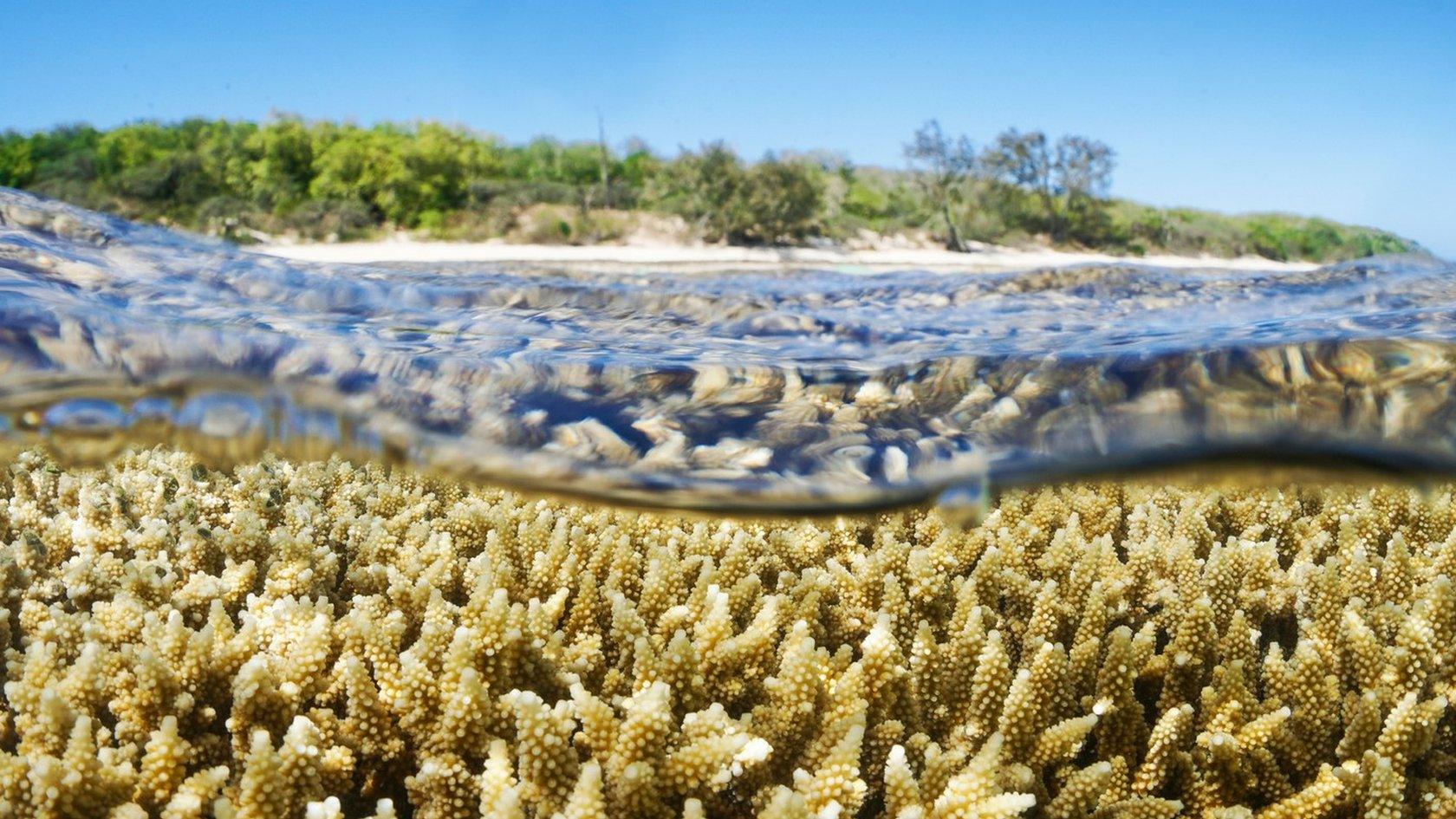How could warmer seas impact marine life in South West?
- Published
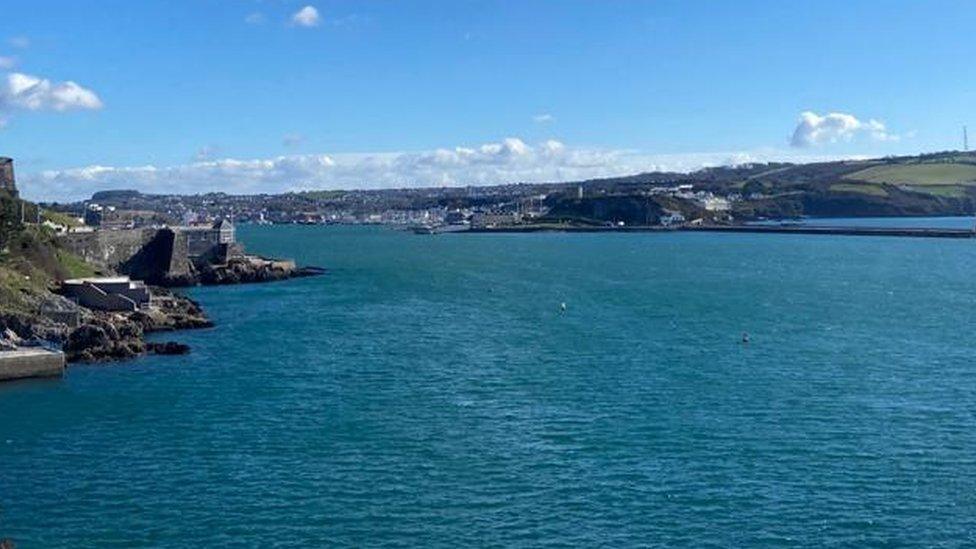
The sea water temperature is an estimated to be 3 to 4C higher than it should be at this time of year
The sea water temperature in Plymouth Sound is some 3-4C higher than it should be at this time of year. It can be great if you want a swim or to surf, but what does it mean for the marine ecosystem and us?
The sea around the UK and Ireland is now in a category 4 extreme heatwave, the categories run from 1-5, with 5 being above extreme.
Sea surface temperatures globally in the last few weeks were higher than they have been since records started in 1850.
Changing sea surface temperatures affect the marine ecosystem - starting with the smallest plant and animal life in the ocean, the plankton.
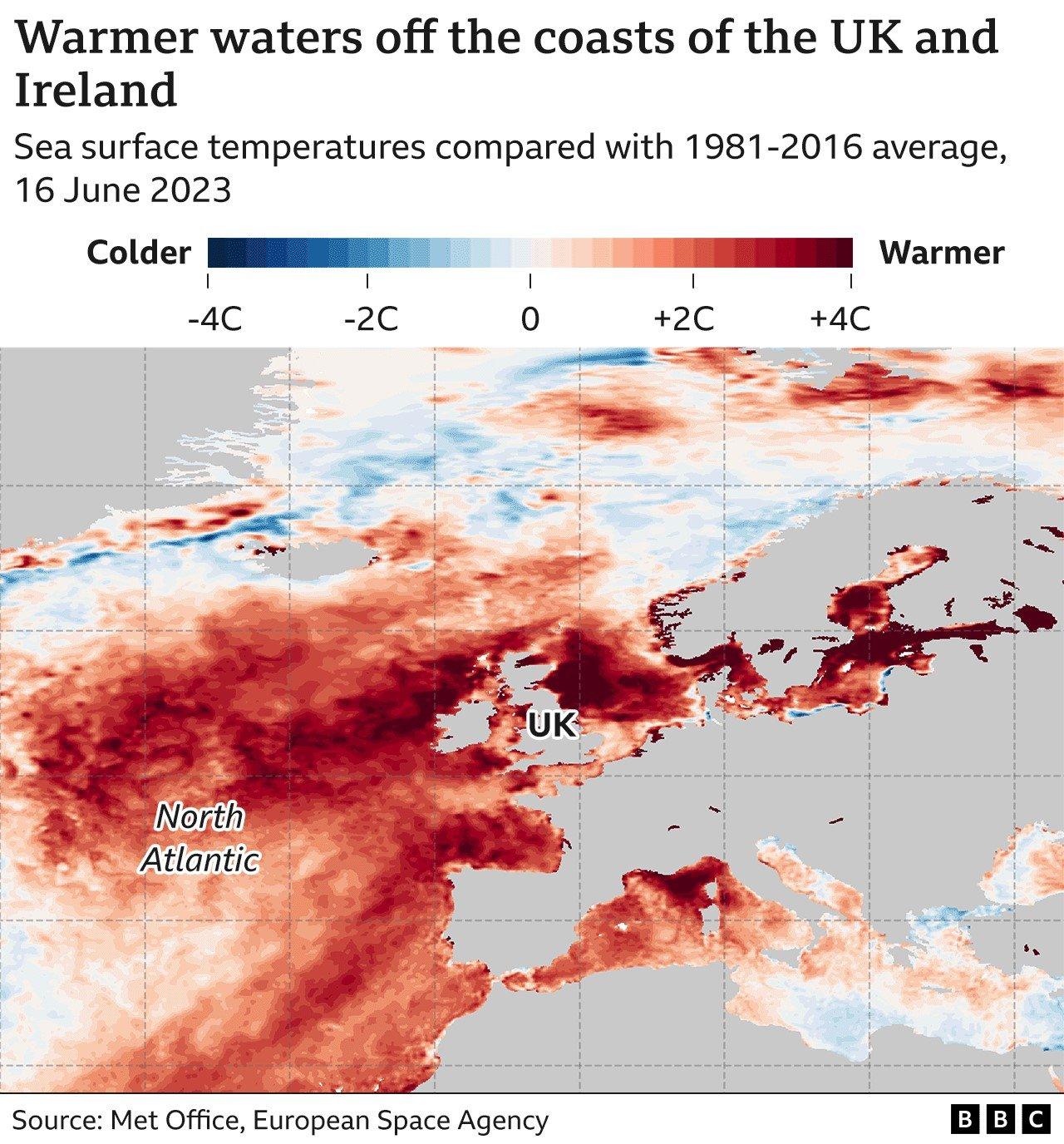
Plymouth Marine Laboratory (PML) studies the phytoplankton and zooplankton in our waters and has 30 years of data.
Thirteen kilometres (8 miles) south of the city, a sensor samples the water, taking photos of the plankton and sending them back for analysis.
Every day samples are tested and checked to see if there is anything out of the ordinary.
'Thermal stress'
Claire Widdecombe, a plankton ecologist at PML, said the higher temperatures were putting marine life under "thermal stress".
"Some species may cope but others will not," she said.
"There are also algal blooms that are harmful to us that can cause skin rashes, these are normally in the Mediterranean and are now off the west coast of Spain and Portugal."
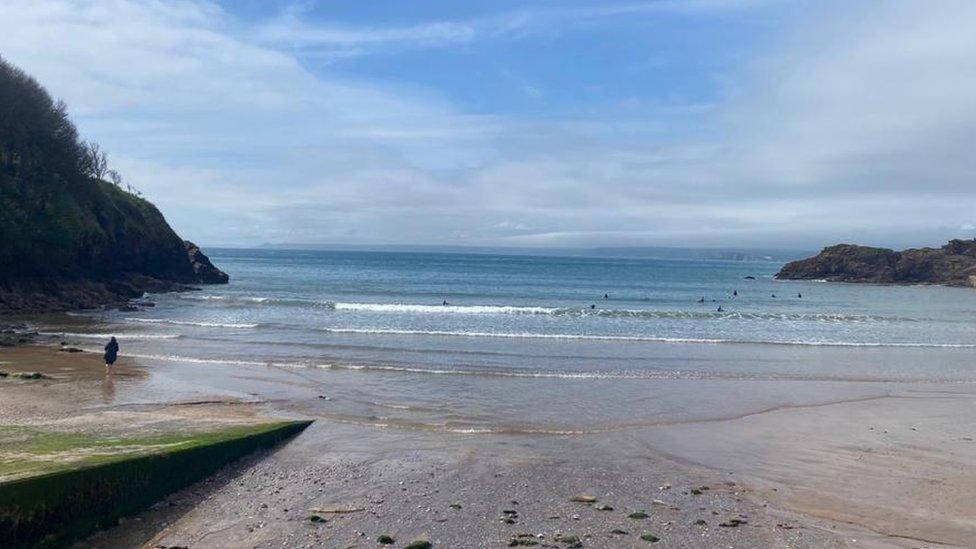
Experts said marine life could be experiencing "thermal stress"
Higher water temperatures often lead to algal blooms (phytoplankton blooms), but sometimes these blooms die off, quickly leading to a sudden depletion of oxygen in the sea water.
The net result is that marine life cannot breathe and die.
This was seen earlier this month when thousands of dead fish, starved of oxygen, washed up along the Gulf Coast in Texas.
The UK is not at that stage but, along with the changes to plankton, there could be changes to other marine species that feed off the microscopic life, such as jellyfish.
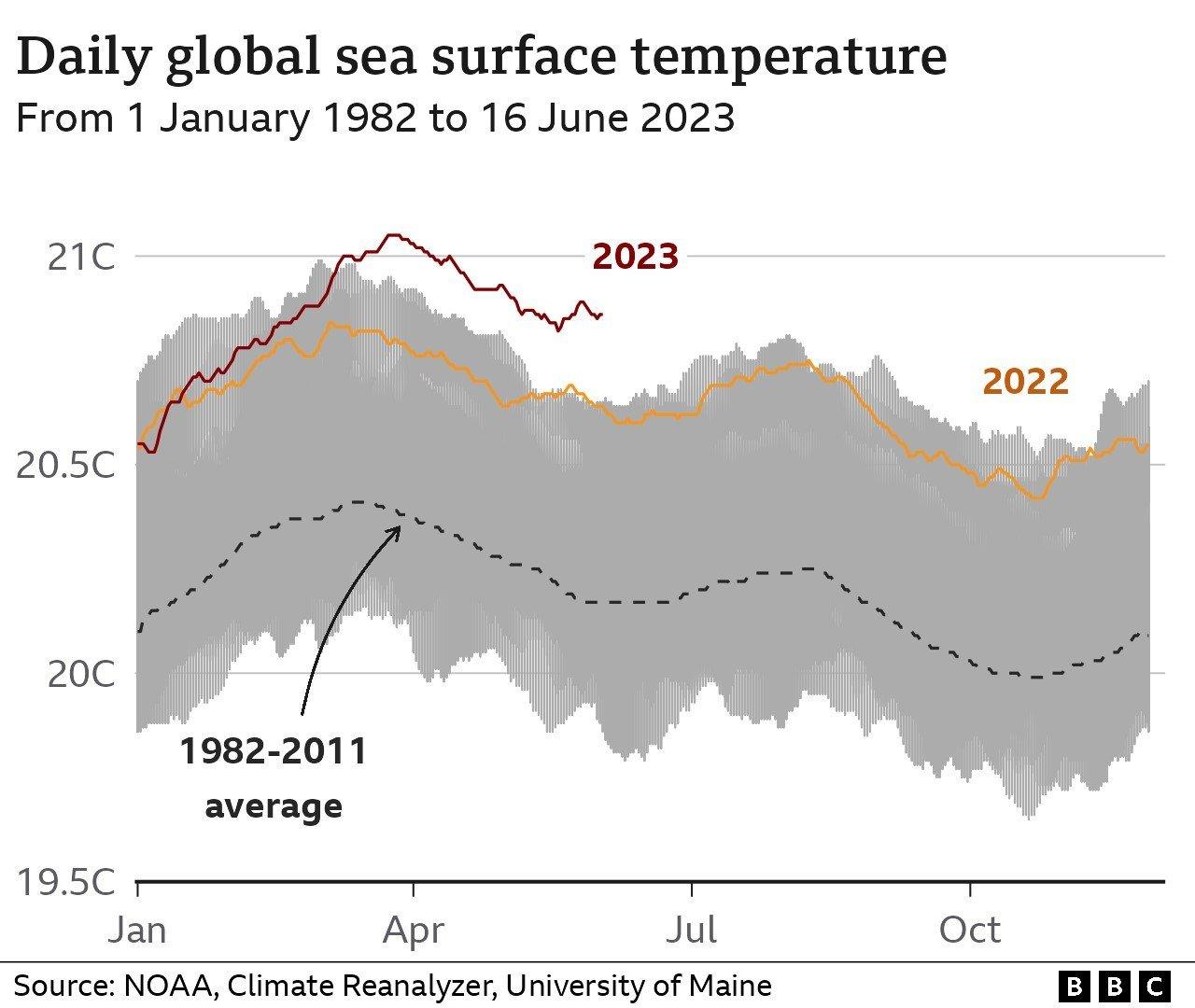
A large smack of Moon jellyfish were recently spotted off Charmouth in west Dorset, external.
The rise in sea temperature and the elimination of predators, such as sharks and tuna, has made conditions ideal.
Moon jellyfish have a mild sting but some other species can be fatal such as the Portuguese man o'war, which can reach South West shores if the water is warm.
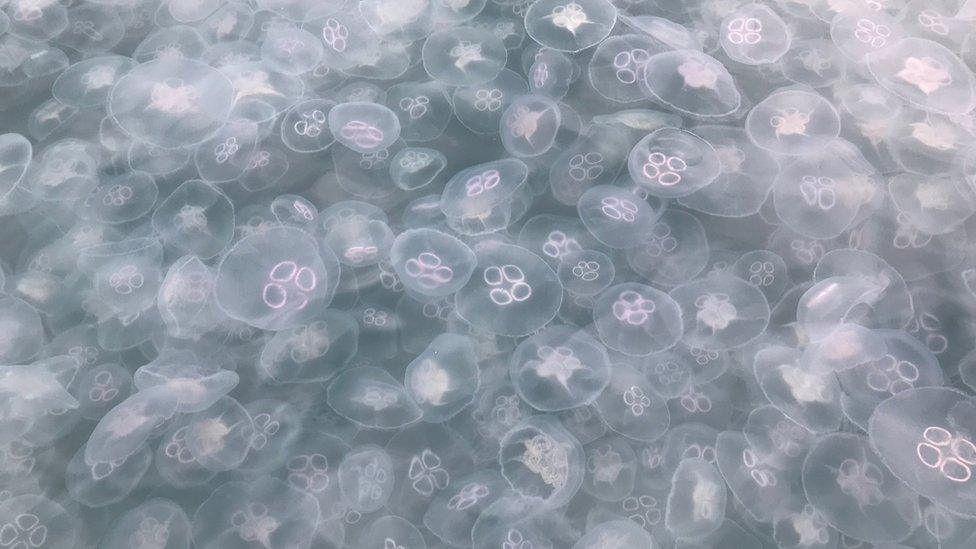
A large bloom of Moon jellyfish were spotted off Dorset

Follow BBC News South West on Twitter, external, Facebook, external and Instagram, external. Send your story ideas to spotlight@bbc.co.uk.
Related topics
- Published19 June 2023
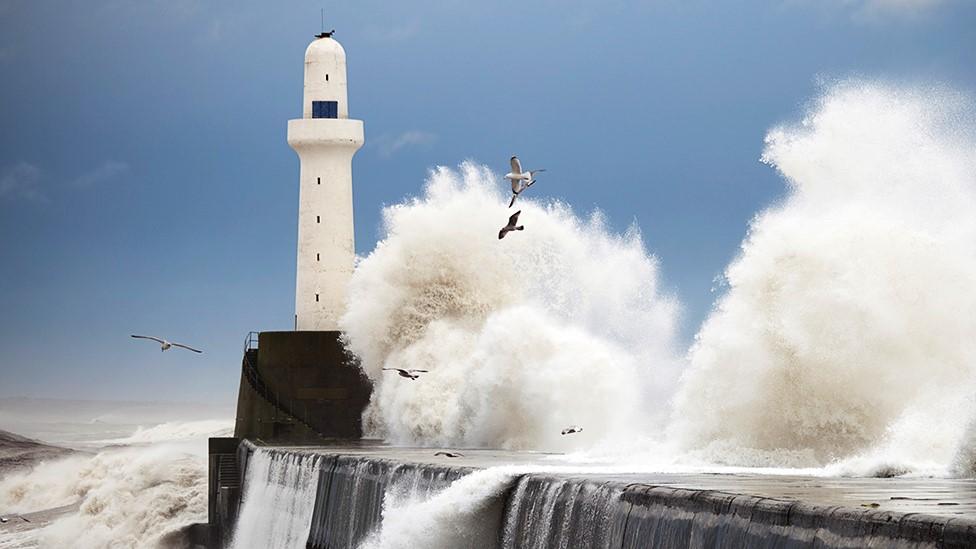
- Published25 April 2023

- Published9 August 2019
